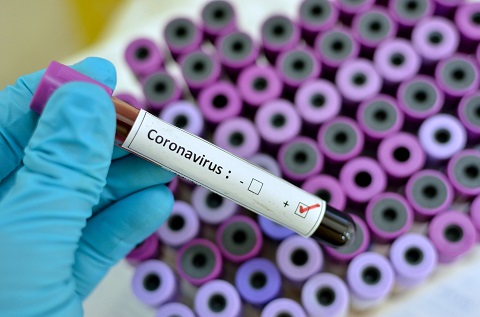Hot Stories
Recent Stories
Be Warned! Coronavirus Can Be Sexually Transmitted
Posted by Thandiubani on Thu 07th May, 2020 - tori.ngScientists have warned people to be more careful after discovering that coronavirus can be sexually transmitted.

Coronavirus
Coronavirus can be passed on during sex, a new study suggests.
Researchers claim that men who had recovered from the infection still had Covid-19 in their semen.
Experts suggest men should consider abstaining from lovemaking or use a condom to help halt the spread.
Chinese scientists analysed the output of 38 patients who had caught the illness – 15 who were still in hospital and 23 who had recovered.
Overall six men, or 16 per cent, had the virus SARS-CoV-2, which causes coronavirus, in their sperm sample – and two of them were already over their illness.
Scientists say it suggests the bug can persist much longer in the testes and could be spread later through sex.
Infectious
Writing in the journal JAMA Network Open, researcher Dr Shixi Zhang, from the Shangqiu Municipal Hospital, says “the survival of SARS-CoV-2 in a recovering patient’s semen maintains the likelihood to infect others”.
He added if bigger trials show coronavirus is passed on during sex, the recovering men should be encouraged to “abstain or use condoms” to prevent transmission.
Brit experts said the findings were “interesting”.
Prof Allan Pacey, Professor of Andrology at Sheffield University, said: “It shows that RNA for the virus responsible for Covid-19 can be detected in the semen of a proportion 16 per cent of men with a confirmed infection.
“This opens up the possibility that one route of infection may be through sexual contact, although this was not confirmed in the paper.
“However, we should not be surprised if the virus which causes Covid-19 is found in the semen of some men since this is been shown with many other viruses such as Ebola and Zika.”
Others scientists said the study raises “important questions”.
Professor Richard Sharpe, from Edinburgh University and a Member of the Society of Endocrinology, said: “It found a minority of men who have had Covid-19 infection diagnosed in a hospital, also exhibit the presence of Covid-19 virus in their semen.
"This included men in the active stage of infection but also a couple of men who were in the clinical stages of recovery from Covid-19.
“This finding raises the possibility that Covid-19 might also be transmissible via semen and thus via sexual contact, perhaps including during the recovery phase.”
He said learning how long the virus persists in semen samples should be a priority to prevent the bug from spreading.
Source: Sun UK
Top Stories
Popular Stories
Stories from this Category
Recent Stories






















































